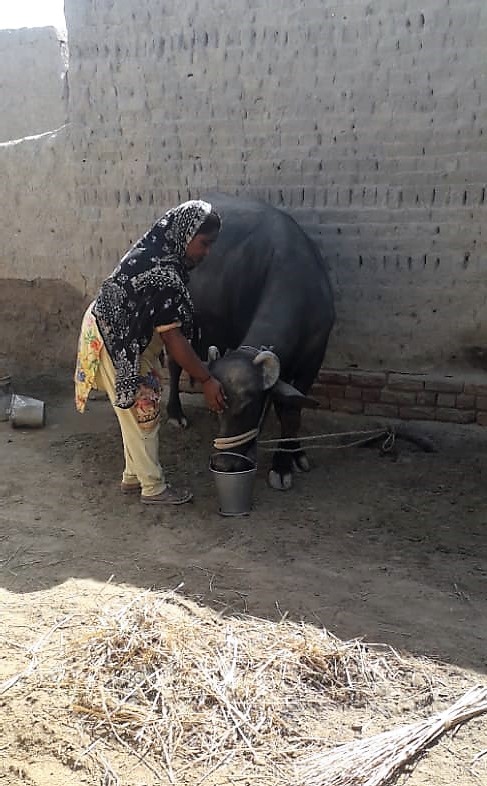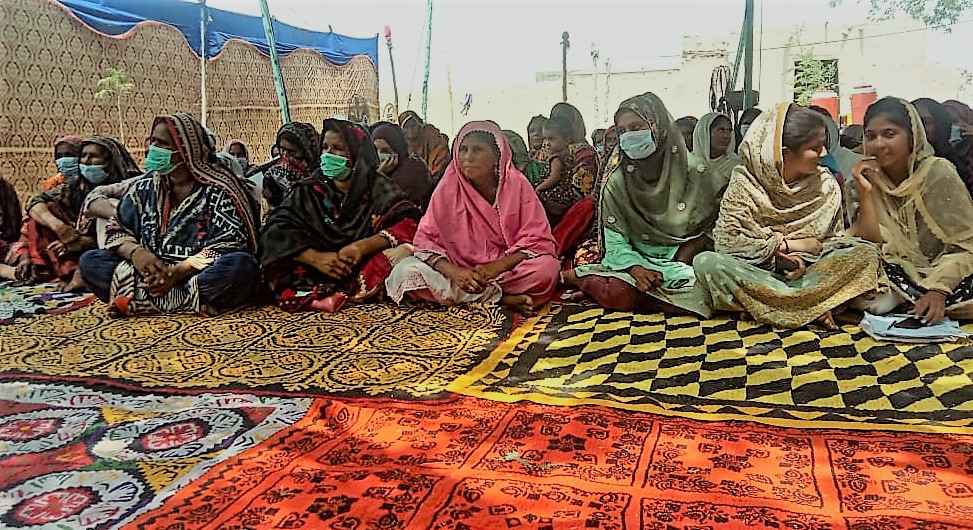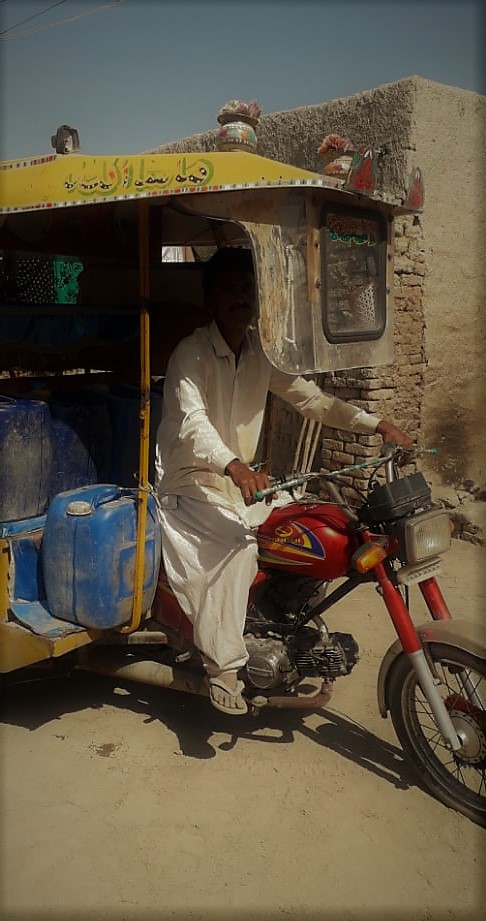
Ms. Ajeeba is Nasirabad’s wise village woman, a role model for others who want to move ahead and make a path towards success
She learned the essential business trick: ‘first be good borrower – return the loan in agreed time; think about new business; initiate it with the saved amount, and if it is short, apply for bridge loan and start a new business’.
By Samina Barkat Ali
Not a long ago, Sindhi newspapers’ frequently carried news items mentioning atrocities against women. The usual captions were: ‘rape’ ‘murder’, ‘kidnap’, ‘minor girl’s marriage’ and ‘Vani’, a compensation for murder committed by their male family members. The situation still prevails, but a new breed of women’s leadership, handy use of new communication technologies, and some successful initiatives have inculcated the hope. Although, it is too bleak, even today, newspapers’ stories reveal that still girls’ schools are closed, a considerable number of women die due to pregnancy complications and feudal system has left literally zero opportunities for women to test their business ideas. Interestingly, none has objected on the status quo, all of us accepted it as usual practice in the name of tradition and culture. We are so mum that even we forget women’s role in agriculture, livestock, managing house affairs and family building.
One day I asked myself, ‘How the union council based interventions, commonly, known the SUCCESS program, have played the role in women’s betterment?’ Lot of ideas came into my mind to gauge the change. I thought that I could get idea from the annual reports, quarterly reports, case studies, newsletters and visitors’ feedbacks. Such a thought made me laugh, how naïve I was, when the primary source was not far away, and I thought about the secondary source. I discarded the idea of reading documents. Now I was considering how to proceed. I prepared notes, and chose a relatively difficult area, Union Council Warah, Taluka Nasirababd, District Kamber-Shahdadkot. Now usage of the methodology was the next step. After some consideration, I decided to apply an open-ended interview technique to capture the story. I met with Ms. Ajeeba Nisar of Warah. The conversation with Ms. Ajeeba compelled me to mingle the open-ended interview technique and autobiographical approach.
 Here I share excerpts from her conservation. It took place at village Mumtazabad, Warah. Ms. Ajeeba Nisar is 40 years old and mother of three children. She told that her parents admitted her in the boys’ primary school, but later she was not allowed to be admitted into boys’ elementary school. Confidently, she told that her parents might have thought I was adult enough to be educated with boys. Therefore, she couldn’t continue her education. Now she has different views regarding girls’ education. She thinks that co-education is an ideal arrangement, where children learn a lot about commonalties and differences of both sexes, and expose themselves that how some assumptions about women have roots in ‘gender’ rather than ‘sex’. Smilingly, she told that women of nearby village know her as a role model.
Here I share excerpts from her conservation. It took place at village Mumtazabad, Warah. Ms. Ajeeba Nisar is 40 years old and mother of three children. She told that her parents admitted her in the boys’ primary school, but later she was not allowed to be admitted into boys’ elementary school. Confidently, she told that her parents might have thought I was adult enough to be educated with boys. Therefore, she couldn’t continue her education. Now she has different views regarding girls’ education. She thinks that co-education is an ideal arrangement, where children learn a lot about commonalties and differences of both sexes, and expose themselves that how some assumptions about women have roots in ‘gender’ rather than ‘sex’. Smilingly, she told that women of nearby village know her as a role model.
On my enquiry, she unpacked further her personal story. Her husband plied donkey-cart in Nasirabad city. He earned some amount, but it was too meager to purchase meals of a day.
She told, “One day, I was pumped into the social organizer of the Sindh Rural Support Organization. I learned about the program, and became a member of the organization. In this way, I got the loan and purchased the goat. After some earning, I paid it, and got another loan. Presently, I keep a small herd, and occasionally sell some goats to meet my family needs.”
She always keeps herd’s numerical strength beneficial. Ajeeba told me that she learned the essential business trick: ‘first be good borrower – return the loan in agreed time. Then, think about new business; it must be initiated with the saved amount, and if it is short, apply for bridge loan and start a new business’. She told that her husband’s new Rickshaw might be an example of that business approach. Elaborating further she said that the donkey – cart, and a few goats were sold, and loan from the community fund enabled them to purchase the Rickshaw.
 “The Rickshaw has done wonders in my family life,” Ajeeba shared her success. According to her, it loads the paddy crop, supplies drinking water and also serves as a passenger-vehicle. It picks and drops students (girls and boys) of ZABTech, Nasirabad and also carries fodder for goats.
“The Rickshaw has done wonders in my family life,” Ajeeba shared her success. According to her, it loads the paddy crop, supplies drinking water and also serves as a passenger-vehicle. It picks and drops students (girls and boys) of ZABTech, Nasirabad and also carries fodder for goats.
“Such multi-type business has enabled us to purchase buffalo. Now milk is regular part of our diet, and excessive is sold. In this way, our health as well as hygiene conditions are improved,” she told.
The autumn day was passing quickly, shadows were becoming larger. So, I told her that soon I would leave. In a hurry she said, “It’s true that I am primary pass, but my daughter has got admission in the intermediate.” She concluded with gleamed eyes that ‘her daughter skillfully operates the computer’.
I closed my notebook. But a sudden thought sparked in my mind. Again, I opened it and jotted down some questions: ‘Ajeeba is one of the humble heroines of Sindh. Who would write the stories of these humble heroines? Or we are conditioned to published ‘miracle’ and ‘big events’?’ Not sure, but I strongly believe that rural women in their life-threat context have dented tribal society in so many ways. Believe me their small steps have made ways for others to follow.
[author title=”Samina Barkat Ali ” image=”https://sindhcourier.com/wp-content/uploads/2021/10/Samina-Barkat-Ali-.jpg”]Ms. Samina Barkat Ali works as the Training Coordinator, at the Sindh Rural Support Program. She could be accessed at saminabarkat@srso.org.pk[/author]